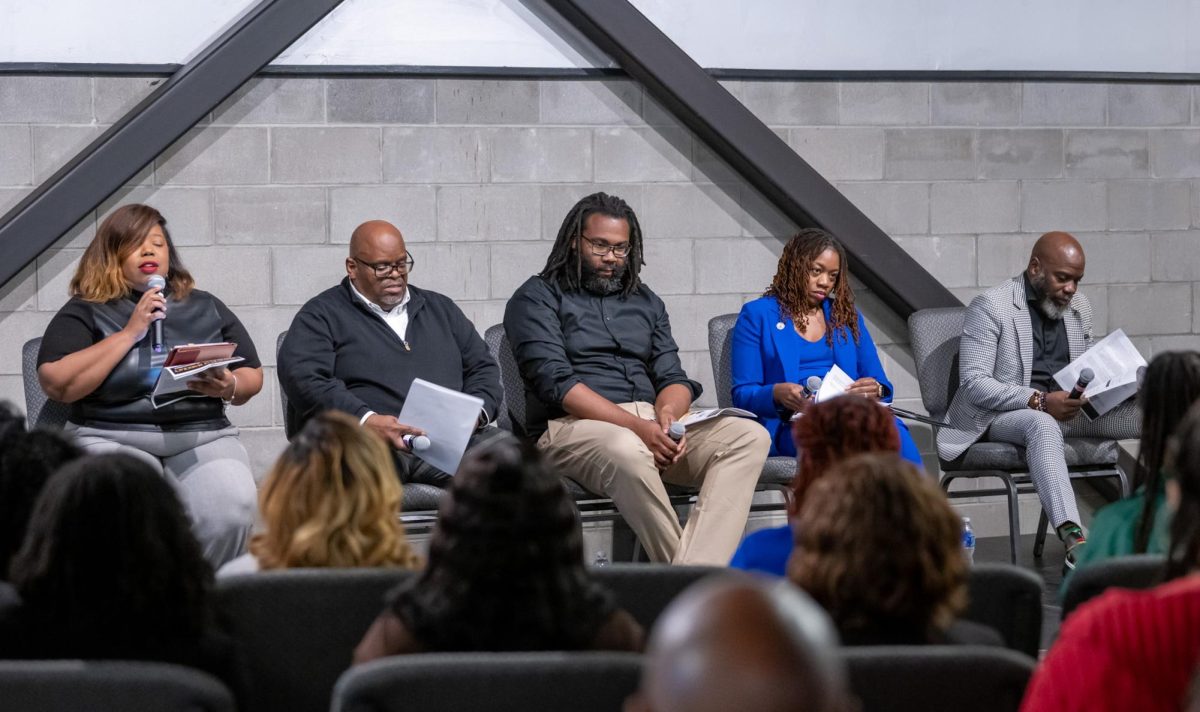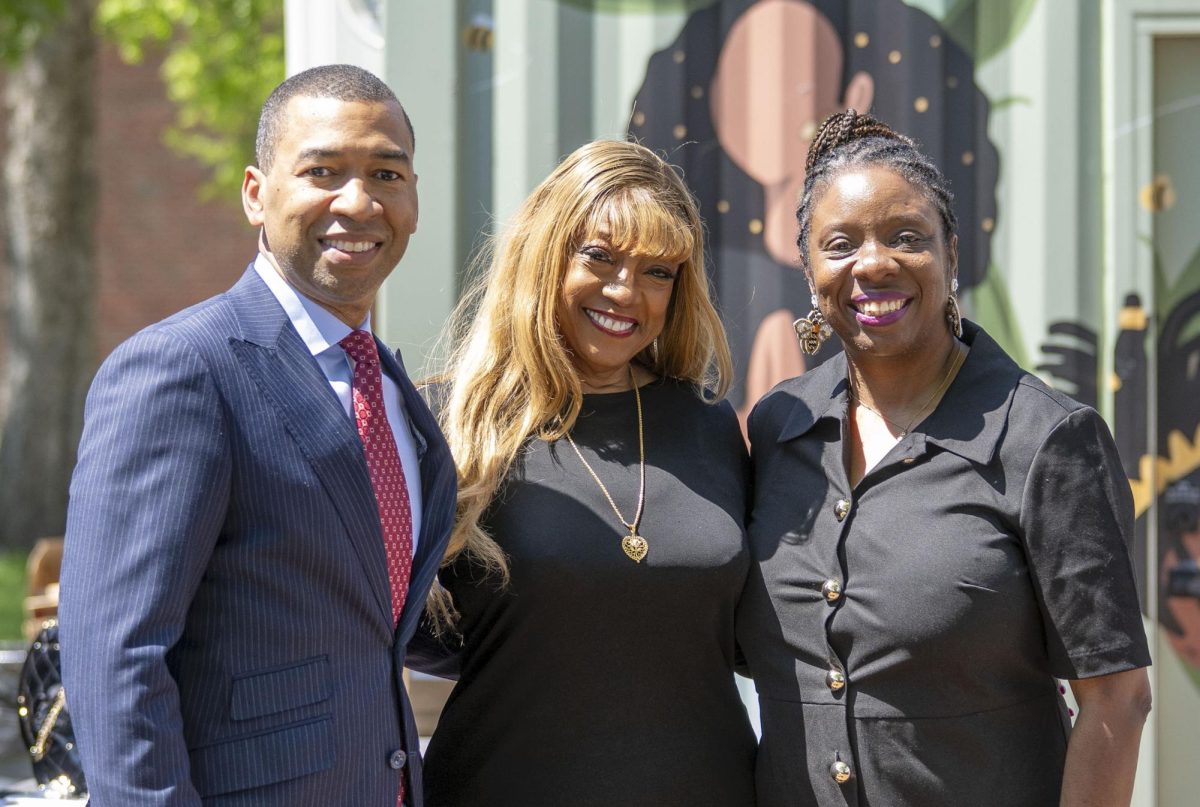“Let’s talk about sex, baby,” Salt-N-Pepa once rapped. Yet, what they did not rap about was the darker side of sex on college campuses, the coercion, the blurred lines of consent, and the consequences that often go unspoken.
College life is marketed as the ultimate time for exploration, but for some students at the university, that “exploration” can quickly spiral into something much more complicated, dangerous and lasting.
It is easy to romanticize the idea of college as a time to experiment with sex, relationships and even substances. However, for many, what starts as an innocent night out can turn into a series of poor decisions that leave a lasting emotional and physical toll. Parties, alcohol, weed, and peer pressure become the breeding ground for situations where consent is misunderstood, ignored, or even forcefully taken.
Clock it: Sexual experiences on campus can alter a student’s path in unexpected and often painful ways. The line between consensual sex and sexual assault can sometimes seem dangerously thin, especially at parties where the alcohol flows freely, weed is passed around, and the music blares in the background, creating an environment that clouds judgment. Frat parties, pool parties, and casual encounters have a darker side that is rarely discussed. The betrayal, the disrespect, and the trauma inflicted often go unnoticed until it is too late.
According to statistics from a study on collegiate sexual behavior, one in five women experience some form of sexual assault while in college. Our university is no exception, with reports of unwanted sexual advances and assaults happening on campus or at social gatherings. The emotional toll of such experiences cannot be overstated,victims are often left feeling betrayed, confused, and ashamed, questioning their worth and their ability to trust others.
The media does not help! Songs like “WAP” by Cardi B and Megan Thee Stallion or “Tip Drill” by Nelly perpetuate the idea that women should be sexually free, performative, and available to everyone. These messages influence the way young women view themselves, pushing them to conform to a stereotype of the “thot” or “party girl” on campus. But being pressured into sex for approval, popularity or social acceptance is not empowerment, it is exploitation.
Let us talk about soul ties, the deep emotional and spiritual connections that are formed through sexual encounters. These ties can be powerful, and for college students, they can be confusing and even toxic. When sex is not based on mutual love and respect, it can create an unhealthy bond that lingers long after the physical act.
Soul ties are not always a concept discussed on campus, but they are real. They contribute to emotional instability, confusion, and sometimes, even depression, particularly when the relationships are not truly reciprocal or healthy. College students often get caught in the cycle of seeking validation through physical encounters, only to find themselves emotionally drained and conflicted when those connections are broken.
Were you aware mental manipulation plays a significant role in the dynamics of sexual behavior on campus. Often, students are coerced or convinced that they “owe” someone sex because of a perceived social debt or a promise made in the heat of the moment. This mental manipulation can erode a person’s self-worth and make them question their own boundaries. When individuals are repeatedly subjected to manipulation, they begin to internalize the notion that their value is tied to how others see them sexually, which can lead to long-term mental health issues.
It is easy to think of sex as just another fun part of the college experience, but the reality is far more complicated. For some, sexual encounters can lead to depression, anxiety, and even academic struggles. A student who engages in casual sex may find that it takes a toll on their time management, their emotional well-being, and their ability to focus on their academic goals. In the worst cases, this pattern can lead to feelings of worthlessness, isolation, or even suicidal thoughts. The pressure to fit into a campus culture that glamorizes sex, especially in light of social media can create an emotional burden that many students are ill-prepared to handle.
The reality of weed use on campus also adds another layer to the issue. While marijuana is increasingly accepted socially and legally in some places, its presence on college campuses can exacerbate risky sexual behaviors. The drug impairs judgment, dulls inhibitions, and creates an altered state of mind that makes it easier for individuals to make decisions they may later regret. Weed use often accompanies parties, and the combination of alcohol, and peer pressure can fuel situations where consent is ignored or unclear.
Listen, the consequences of risky sexual behavior extend far beyond emotional distress. Pregnancy and sexually transmitted infections (STIs), including HIV, can result from unprotected sex, often with little consideration of the long-term implications. According to the Centers for Disease Control and Prevention, college students are at high risk of contracting STIs due to inconsistent condom use and a general lack of sexual health education. In some cases, the damage is irreversible, leaving students with lifelong consequences that could have been prevented with constant awareness.
College campuses, including the university have policies in place to address issues of sexual assault, but many students still feel unsure about reporting incidents or seeking help. This is due to a combination of fear, shame, and a lack of clear understanding of what constitutes sexual assault versus consent. Universities must do more to educate students on what is and is not acceptable behavior, and they must provide accessible resources to support those who have been affected by sexual violence.
The Buzz is, sex on campus is not just about fun or rebellion. It is about understanding the risks, the consequences, and the lasting effects on one’s health and well-being. It is time we start addressing these issues openly, no more glossing over them in favor of the so-called “college experience” and the “gold standard of excellence.” The pressure to conform to campus norms, to fit into a social scene that values promiscuity, has real-world consequences. We must stop glorifying the party lifestyle on campus and start emphasizing healthy relationships and respect for others.
Universities across the nation, need to do more to educate students about the risks associated with sexual behavior, the implications of substance use, and the importance of consent. This includes providing clear, accessible resources for students who are victims of sexual assault and ensuring that all students understand their rights. Above all, we must create a movement of respect, where every student feels comfortable to make informed decisions about their bodies and their lives.
Until then, the cycle of pressure, confusion, and regret will continue to affect students on college campuses, turning what should be a time of self-discovery into one of pain and consequence. The conversation must shift from glorifying reckless behavior at parties to promoting respect and responsibility among each other.
Categories:
Sex and soul ties among the student body
Michele Amerson, Staff Columnist
March 29, 2025
Michelle Amerson is a staff columnist for the 2024-25 The Hornet Tribune Staff. She is presently majoring in communications and English and hopes to one day become a
syndicated writer for a commercial newspaper.
Story continues below advertisement
0
More to Discover












